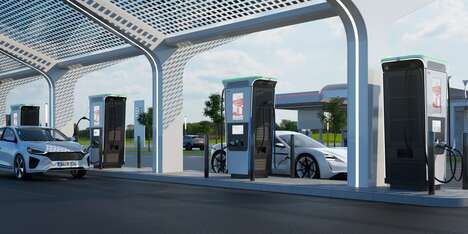Electric rickshaws (e-rickshaws) and electric vehicles, in general, are often considered as part of the future of transportation for several reasons:
- Environmental Sustainability:
- E-rickshaws and electric vehicles produce fewer greenhouse gas emissions compared to traditional internal combustion engine vehicles. This makes them more environmentally friendly and aligns with global efforts to reduce air pollution and combat climate change.
- Reduced Dependence on Fossil Fuels:
- E-vehicles run on electricity, which can be generated from a variety of sources, including renewable energy like solar, wind, or hydropower. This reduces dependence on finite fossil fuels and promotes the use of cleaner energy sources.
- Lower Operating Costs:
- E-rickshaws and electric vehicles generally have lower operating costs compared to traditional vehicles. The cost of electricity is often lower than that of gasoline or diesel, and electric vehicles have fewer moving parts, resulting in lower maintenance costs.
- Government Incentives:
- Many governments around the world are offering incentives and subsidies to promote the adoption of electric vehicles. These incentives may include tax credits, rebates, reduced registration fees, and other financial benefits for both manufacturers and consumers.
- Technological Advancements:
- Ongoing advancements in battery technology and electric drivetrains are improving the performance, range, and affordability of electric vehicles. As technology continues to advance, e-vehicles are becoming more viable for a broader range of applications.
- Urban Mobility Solutions:
- E-rickshaws, in particular, are well-suited for short-distance urban transportation. They provide a cost-effective and efficient mode of transportation for short trips, reducing congestion in densely populated areas.
- Noise Reduction:
- Electric vehicles are generally quieter than their traditional counterparts. This can contribute to a reduction in noise pollution, especially in urban environments where noise levels from traffic can be a significant issue.
- Global Shift towards Sustainability:
- There is a growing global awareness and commitment to sustainable living and environmental conservation. As a result, individuals and businesses are increasingly looking for eco-friendly transportation options, and electric vehicles align with these values.
- Improved Infrastructure:
- Governments and private entities are investing in charging infrastructure to support the widespread adoption of electric vehicles. As the charging infrastructure improves, the range anxiety associated with electric vehicles diminishes, making them more attractive to consumers.
- Public Awareness and Perception:
- There is a rising awareness among the public about the environmental impact of traditional vehicles. As this awareness grows, there is an increased interest in adopting cleaner and more sustainable transportation options.
While there are challenges to overcome, such as battery technology limitations, charging infrastructure development, and initial costs, the momentum towards electric vehicles, including e-rickshaws, suggests a transformative shift in the automotive industry towards a more sustainable future.
